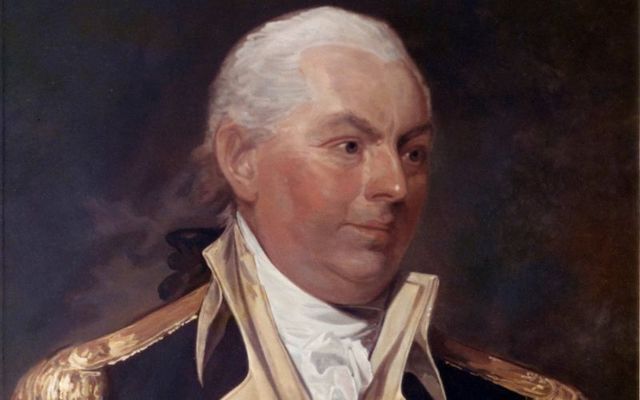A new RTÉ podcast series provides a fascinating look at some of the more unexplored figures from Irish history.
"Imperial Lives", hosted by Kate O'Malley and Abie Philbin Bowman, explores the captivating stories of colonial governors, naval heroes, secret police, and teenage girls fleeing the Famine.
Four episodes of the six-part series have already been released, with the final two episodes set to air on Tuesday, July 30, and Tuesday, August 6.
All six episodes of the series focus on Irish people whose lives were shaped by their service in, or agitation against, the British Empire.
Episode One of the series studies the life of William O'Brien, the Second Earl of Inchiquin, who became Governor of Jamaica in the 17th Century.
Born in Cork as the eldest son of a notorious military commander, O'Brien was imprisoned in the Tower of London when his father defected to the Royalist cause in the 1640s. He was later captured by Algerian pirates while serving the French Crown in Catalonia and lost an eye while being held hostage for over a year.
In 1674, King Charles II appointed O'Brien as Governor of Tangiers in Morocco, which he struggled to defend for over six years. He was later appointed as Governor of Jamaica by William of Orange despite his lackluster record in Tangiers.
The second episode of the series shines a light on the thousands of orphan girls sent to Australia during the Irish Famine.
Between 1848 and 1850, more than 4,000 Irish girls were sent to Australia where they faced widespread prejudice and hostility.
The harrowing story is told through the case of Eliza Fraiser from Belfast, tracking her struggles and triumphs in vivid detail.
The third episode of the series explores the tale of Commodore John Barry, who received the first commission in the US Navy.
Barry, who was born in Wexford, moved to Philadelphia when he was 15 years old to escape the existing penal laws in Ireland and later earned his first naval command with the British Navy.
When the 13 colonies declared independence from Britain, Barry joined the revolutionaries and captured the first British Navy ship for the Continental Navy.
President George Washington later awarded him the first commission in US Navy history for his efforts during the War of Independence.
The latest episode of the series explores the untold story of Irish slave owners and whistleblowers in the Caribbean.
Kerryman David Tuohy captained four expeditions that oversaw the forced transport of enslaved Africans to the Caribbean, using the money earned from the expeditions to finance similar expeditions.
However, the episode also explores the story of Dublin-born sailor James Field Stanfield, who witnessed the horrors of slavery and penned accounts of the expeditions. His accounts later provided key testimony to the abolitionist movement.
Meanwhile, Howe Peter Browne, who inherited his family’s Jamaican plantations, became Governor of the island in 1834 and was charged with implementing reforms that would end enslavement.
The episode also explores the story of two Irish women who traveled to Jamaica a century later and became involved in political agitation on the island, leading to their imprisonment.
The next episode of the series, released next Tuesday, will take a look at the life of Charles Gavan Duffy, the father of Anglo-Irish Treaty signatory George Gavan Duffy.

Love Irish history? Share your favorite stories with other history buffs in the IrishCentral History Facebook group.
Charles Gavan Duffy was elected to Westminster in 1852 after agitating for tenants' rights in Ireland and later emigrated to Australia due to his failing health.
There, he was elected to the Parliament of Victoria and eventually served as State Premier before retiring to France.
In the final episode of the series, O'Malley and Philbin Bowman will explore the life of Charles Tegart, who abandoned his studies at Trinity College to pursue a career in military intelligence.
Working for the British Empire, Tegart was involved in intelligence operations in revolutionary Bengal and War of Independence Ireland, while he also served in Palestine before working in Ireland again during the Second World War.




Comments